It has long been my opinion, and I have never shrunk from its expression… that the germ of dissolution of our Federal Government is in the constitution of the Federal Judiciary – an irresponsible body…working like gravity by night and by day, gaining a little today and a little tomorrow, and advancing its noiseless step like a thief over the field of jurisdiction until all shall be usurped from the States and the government be consolidated into one. To this I am opposed.
—Thomas Jefferson—
When did it become the law of the land that the Supreme Court has the final say on anything? They cannot have the final say on anything. The American people have the final say on anything.
—Rick Santorum—
Key point: The Supreme Court is to be under the Constitution, not above it. The Court is abusing its authority.
On June 26, 2013, the Supreme Court struck down the Defense of Marriage Act and, in a separate case, refused to rule on the constitutionality of Proposition 8, California’s voter-approved constitutional amendment limiting marriage to opposite sex couples. This latter action let stand a lower court ruling that Proposition 8, was unconstitutional. (It is amazing how the court can rule that a constitutional amendment voted on by the people and constitutionally adopted is unconstitutional!) Yet the justices also affirmed the right of states to define marriage for themselves.
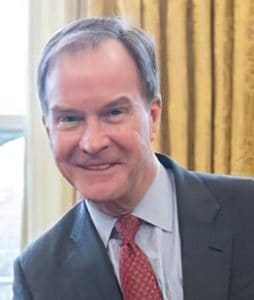
Michigan was one of more than 30 states that legally had defined marriage as being between one man and one woman. In Michigan, a constitutional amendment protecting man-woman marriage had been adopted by the state’s voters on November 2, 2004, 59 percent to 41 percent. At the time of the ruling by the Supreme Court in 2013 that affirmed the right of states to define marriage, Michigan Attorney General Bill Schuette (R) said in a statement,
The U.S. Supreme Court ruled that states, not the federal government, retain the constitutional authority to define marriage. Michigan’s Constitution stands and the will of the people to define marriage as between one man and one woman endures in the Great Lakes State.
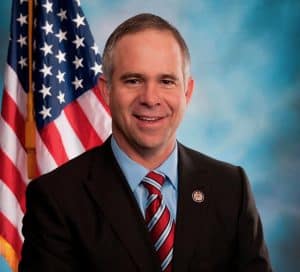
Tim Huelskamp, then a Republican member of the US House of Representatives from Kansas, said that “one good thing out of the decision was the court did not declare that there was a constitutional right for same-sex marriage. [Therefore, Kansas] will be able to maintain its marriage [protection] amendment.”
Any confidence in the right of states to define marriage, however, would be short-lived. It would not be long before the court would overrule its own decision.
A Supreme Abuse of Power
As everyone now knows, two years later, on June 26, 2015, the Supreme Court’s ruling in Obergefell struck down all laws prohibiting same-sex marriage, including all the state constitutional amendments citizens had worked hard to pass through due process. The court also struck down marriage protection laws passed by state legislatures. So much for precedent.
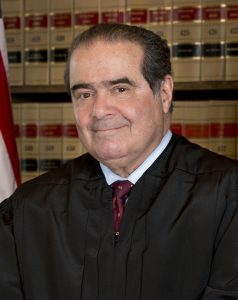
To many and perhaps even most of those who have stood in opposition to government recognition of same-sex marriage, the inherent dynamics of heterosexual marriage made a same-sex relationship incapable of being a marriage. Moreover, it is not at all difficult to figure out what the Founders understood marriage to be. Nor do we wonder whether or not it ever crossed the mind of anyone involved in passing the Fourteenth Amendment that it might used to redefine marriage. The Fourteenth Amendment doesn’t mention marriage and isn’t about marriage; but that didn’t keep five Supreme Court justices from effectively rewriting it to include a “right” to same-sex “marriage.” As Justice Antonin Scalia wrote in his dissent, “The five Justices who compose today’s majority are entirely comfortable concluding that every State violated the Constitution for all of the 135 years between the Fourteenth Amendment’s ratification and Massachusetts’ permitting of same-sex marriages in 2003.”
The five Justices who compose today’s majority are entirely comfortable concluding that every State violated the Constitution for all of the 135 years between the Fourteenth Amendment’s ratification and Massachusetts’ permitting of same-sex marriages in 2003.
—Justice Antonin Scalia, in his dissent in Obergefell, June 26, 2015—
Violating “The Laws of Nature and of Nature’s God” and “unalienable Rights”
Beyond the blatant betrayals of
-
-
- nature’s clear statement on what marriage is and
- the people’s intentions regarding the constitutional amendment (adopted in 1868) that was hijacked to reshape an institution into something it clearly is not,
-

religious liberty also was, and remains, a grave concern. With government recognition of same-sex “marriage,” what would now be expected of those who believe marriage can be only between one man and one woman? Would these people still be free to hold their own views on marriage? Would they still be free to act and live according to their views, as long as they didn’t try force those views on people who disagreed with them?

Remember that marriage had been defined only as a lifelong commitment between one man and one woman for millennia, so those holding the traditional view weren’t charting a new course. As terrible as it is for the state to say two men or two women can “marry,” would government recognition of such relationships as “marriages” also mean the state (an individual state or the federal government) could now force those who believe in man-woman marriage to affirm same-sex marriage against their wills? On the front lines of this issue, of course, are those who work in the wedding industry — professionals such as cake artists, caterers, florists, wedding venue operators, artists, and photographers.

Keep in mind that whenever a professional turns down an opportunity to do a job for a same-sex couple getting “married,” no one is preventing that couple from entering into the relationship they wish to enter. Thus, even if a cake artist declines to create a cake for two men or two women, he or she isn’t violating the couple’s right — unless, of course, the government is upholding the “right” of the couple to have a cake from any cake artist they choose, even if the one chosen wishes not to participate for religious reasons. Would the Founders of this country say that was an unalienable right governments are established to protect? The answer is self-evident.
Creating a “Right” to Violate the Authentic Rights of Others
Despite these realities, no one would be safe from the demands made by militant homosexual activists. They’re not just concerned about what they call “discrimination”; they’re ultimately obsessed about what everybody believes. They demand, not just that people agree with them about homosexuality and other forms of LGBTQ expression, but that people also celebrate with them. To fail to celebrate with them is, in their minds, to be filled with hate. Ironically, the objections genuine Christians have to same-sex marriage have absolutely nothing to do with hate. They’re about the nature of marriage itself.

Marriage is not just a relationship recognized by the state; it’s also one that, first and foremost, was established and ordained by God.
-
-
- Christianity recognizes marriage and family as the most basic unit of society.
- It also sees marriage as a picture Christ and His church, and therefore
- as a picture of the gospel.
- Further, the Christian faith sees the unity and diversity within man-woman marriage as reflective of the unity and diversity existing within the triune Godhead, the Trinity. It is amazing that the mantra of LGBTQ activists is diversity; yet same-sex marriage defies it. Heterosexual marriage is about genuine diversity.
-
Thus, to many people of faith, marriage is unalterable and sacred. To participate in any act that that would distort the biblical definition of marriage would mean violating one’s conscience. It would mean sinning by participating in a lie.
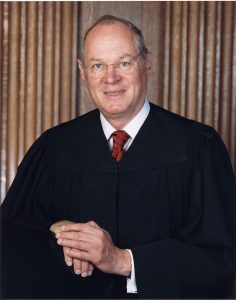
In Obergefell, Justice Anthony Kennedy wrote the 5-4 majority opinion. In it, he made this statement about religious liberty.
Finally, it must be emphasized that religions, and those who adhere to religious doctrines, may continue to advocate with utmost, sincere conviction that, by divine precepts, same-sex marriage should not be condoned. The First Amendment ensures that religious organizations and persons are given proper protection as they seek to teach the principles that are so fulfilling and so central to their lives and faiths, and to their own deep aspirations to continue the family structure they have long revered. The same is true of those who oppose same-sex marriage for other reasons.
Consider these facts. 1) The “right” to same-sex “marriage” was established by a razor-thin majority. 2) This decision ran roughshod over the right of states to define marriage for themselves, a right the same court, again, by a razor-thin majority, had affirmed just two years prior! Against this backdrop, can we really be surprised at the tepid affirmation of the right to oppose same-sex marriage, as expressed by Justice Kennedy? It appears that the court was charting the nation’s course toward recognizing same-sex marriage, and once it arrived, that it began charting a course toward a denial of First Amendment rights based on its new definition of marriage.1
It appears that the Supreme Court was charting the nation’s course toward recognizing same-sex marriage, and once it arrived, that it began charting a course toward a denial of First Amendment rights based on its new definition of marriage.
First, Justice Kennedy said that “it must be emphasized that religions, and those who adhere to religious doctrines, may continue to advocate with utmost, sincere conviction that, by divine precepts, same-sex marriage should not be condoned.” This statement reeks with arrogance, as if Justice Kennedy and the four other justices voting with him actually had the authority to determine whether nor not “religions, and those who adhere to religious doctrines, may continue to advocate…[that] same–sex marriage should not be condoned.” The Founders never authorized the government, or any branch of the government, to do any such thing. Instead, the Founding Fathers authorized government to recognize and uphold rights already given by God. (See parts 2 and 3 of this series.) God-given rights are natural and inherent; freedom of speech and freedom of worship are great examples. We are free to exercise these and other inherent rights when government stays out of our way and when it keeps keeps other citizens out of our way. Unhindered, individuals and groups can act freely, in accord with their opportunities, their desires, and, of course, their consciences.
Second, Justice Kennedy stated that “[t]he First Amendment ensures that religious organizations and persons are given proper protection as they seek to teach the principles that are so fulfilling and so central to their lives and faiths, and to their own deep aspirations to continue the family structure they have long revered.” The First Amendment, however, does a lot more than that! It guarantees the right to advocate for these ideals in the public square. It affirms the right of conscience, a right the Founders strictly observed and upheld (go here, here, and here).
Is the Court Trying to Manipulate Politicians and the Public?
Fast forward six years, to 2021. Almost prophetically, on July 1 — one day before SCOTUS would officially trash the Constitutional rights of Christian florist Barronelle Stutzman — a piece by John Green titled “Is the Supreme Court gaslighting us?” appeared in American Thinker. Green makes the case that the Court, whose job it is to uphold the Constitution and render justice, is instead thoroughly political and subjective. Further, he contends the Court also is being manipulative. Writes Green,
The reality is that the Court is in trouble. It is no longer trusted to be unbiased.…Literal interpretation of the Constitution would have been easy and noncontroversial. It’s the philosophy that originalist justices subscribe to.…After all, the document says what it says.
The Court’s caseload would be substantially lighter. Everybody can read the Constitution and would know in advance how the Court would be likely to rule on any given subject. Their rulings would be predictable, and hence noncontroversial. It wouldn’t matter if a justice’s leanings are conservative or liberal. The Constitution says what it says. If it needs to change, it’s someone else’s job to change it.
Instead, the Court decided to go down the creative interpretation road. Either through hubris or shortsightedness, the justices granted themselves the power to find things in the Constitution that aren’t actually written in it. Their logic became mysterious and their rulings unpredictable. Creative interpretation inevitably allowed personal biases to creep into the court’s rulings.…
And just like that, the justices became political players.…
After fifty years of creativity, the Court has discovered all kinds of things hidden in the Constitution.
-
-
-
-
- A right to privacy
- A right to abortion
- A right to dignity (whatever that means)
- A right to same-sex “marriage”
- The federal government can regulate commerce within a state (not just between states)
- Municipalities can seize private property to give to another private party
- The federal government can order us to buy products from private companies
-
-
-
Because of what they can “discover” in the Constitution, the ideology of individual justices has become so important that managing the makeup of the bench has become a primary political objective.…[Yet, t]he reality is that if justices are going to be political players, the citizenry needs a way to remove them. Yup — the Supreme Court is in trouble, and it brought it upon itself.
Green also asks if recent uptick in the number of unanimous and near-unanimous decisions from SCOTUS (go here and here) represents an attempt to gaslight politicians and the American public, essentially sending out the message, No, we’re not political! You just think we are! We really are unbiased, just as a court ought to be.
Keep in mind that one of the unanimous rulings affirmed the right of Catholic Social Services in Philadelphia to decline to place children with same-sex couples. In the wake of the decision, Alliance Defending Freedom, which represents Barronelle Stutzman, a Christian florist who politely declined to arrange flowers for a same-sex wedding, released an article that expressed hope that the decision pretended good news for Barronelle.
Yet even ADF would be cautions in its optimism; of all people, ADF lawyers are keenly aware that the Court’s unanimous opinions typically are narrow; they focus on details specific to the particular cases in question, not on broader issues like Constitutional rights.
This, however, appears to be a large part of the problem. Green expresses it well. The justices
took an oath to defend the Constitution. But instead, they’re trying to defend the Court. They’ve forgotten that the court’s legitimacy comes from the Constitution. Once the Constitution is rendered meaningless, so is the Court, and so are they.
Barronelle Stutzman Betrayed
John Green is onto something. More proof (as if additional proof were needed) came the next day, on July 2, 2021. The rogue Supreme Court of the United States forgot even what Justice Kennedy said in 2015 in his weak (and even begrudging) assent to the right to teach what one believes about marriage. Instead, the Court took a wrecking ball to conscience rights. In a 6-3 vote, it denied Barronelle Stutzman’s request for a hearing. This left in place a lower court ruling against Barronelle. It is noteworthy, and upon reflection, not at all surprising, that a court that would carve out a right to same-sex marriage would eviscerate the right of an individual to follow her own conscience (a right guaranteed, we must emphasize again, by the First Amendment). And consider that only a few days before, the same Court, with the very same justices, had issued its unanimous decision in favor of Catholic Social Services. I know various details are unique to certain cases, but it doesn’t take a lawyer to see something woefully wrong with a unanimous decision for a faith-based foster care agency and one denying a Christian businesswoman the right to practice her faith according to the dictates of her own conscience. The Court is ruling arbitrarily!
 We’ll have a lot to say next time about the Supreme Court’s decision to deny Barronelle her request for a hearing. In his commentary of July 7, 2021, John Stonestreet of BreakPoint succinctly summarizes Barronelle’s case and describes the profound injustices she was dealt. Here is a PDF file of the commentary I obtained from the Colson Center for Christian Worldview. At Word Foundations, we have chronicled Barronelle Stutzman’s journey on numerous occasions, including this one.
We’ll have a lot to say next time about the Supreme Court’s decision to deny Barronelle her request for a hearing. In his commentary of July 7, 2021, John Stonestreet of BreakPoint succinctly summarizes Barronelle’s case and describes the profound injustices she was dealt. Here is a PDF file of the commentary I obtained from the Colson Center for Christian Worldview. At Word Foundations, we have chronicled Barronelle Stutzman’s journey on numerous occasions, including this one.
Between now and next time, listen to the BreakPoint commentary and read the Word Foundations post. Pray for Barronelle and the nation, and pray that the American people will be able to effectively work for justice in this case and others, even against the backdrop of a court that doesn’t seem to care about making justice a priority —
even though that is their primary job.
Part 2 is available here.
Copyright © 2021 by B. Nathaniel Sullivan. All rights reserved.
Note:
1The Court’s new definition of marriage didn’t merely make same-sex couples eligible for a relationship that the state would recognize as a marriage. It redefined marriage for everyone — even heterosexual couples committed to each other for life. To the federal government marriage is now whatever the state says it is. To embrace this perspective, the Supreme Court and every other individual and entity upholding a “right” to same-sex “marriage” had to turn blind eyes and deaf ears to everything nature says about what marriage is and what it cannot be. This is why, when the Liberty Counsel’s Mat Staver and Deacon Keith Fournier wrote the “Pledge in Solidarity to Defend Marriage,” they used the word ontologically: “Marriage is ontologically between one man and one woman, ordered toward the union of the spouses, open to children and formative of family. Family is the first vital cell of society, the first government, and the first mediating institution of our social order. The future of a free and healthy society passes through marriage and the family.”
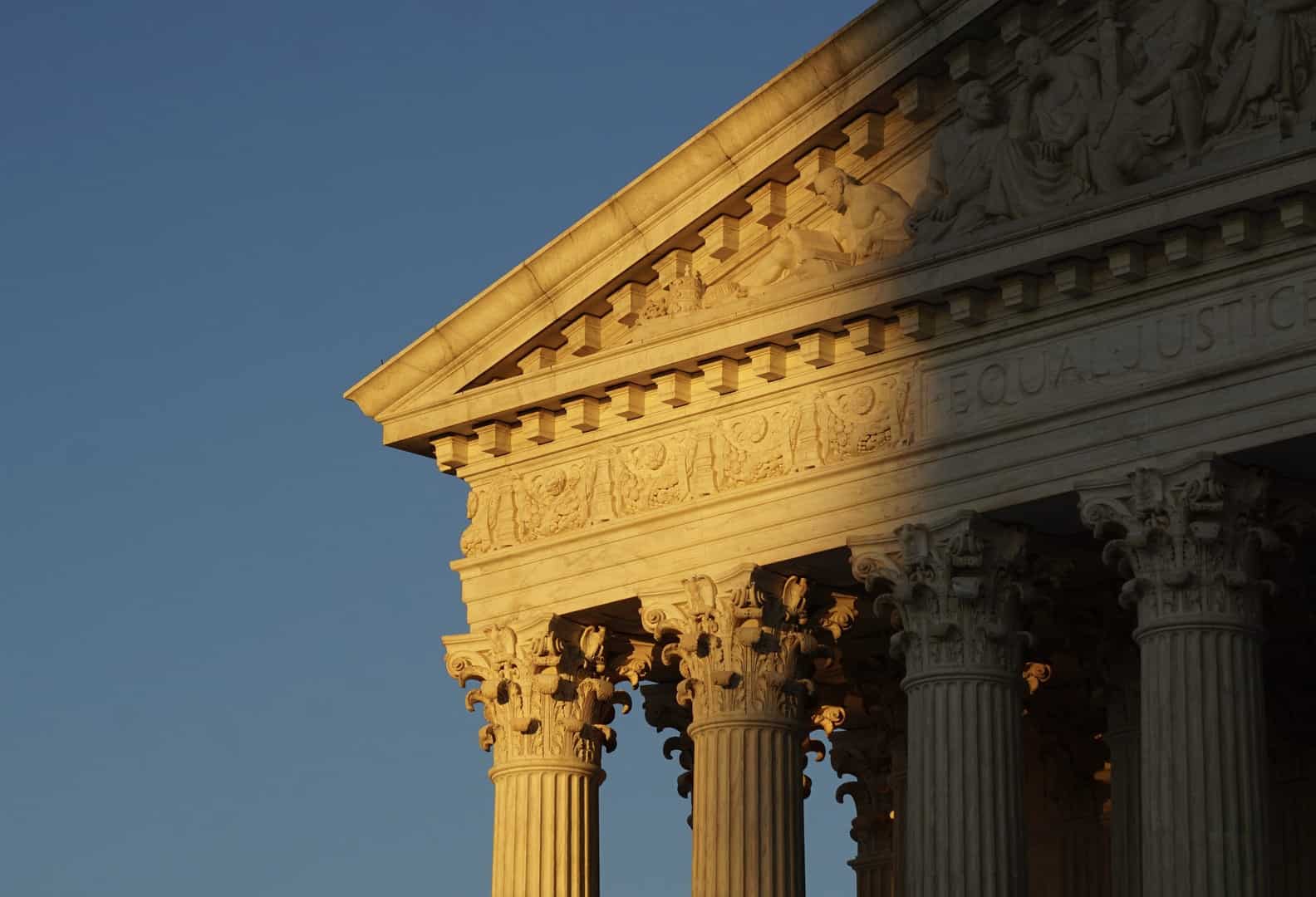


Be First to Comment